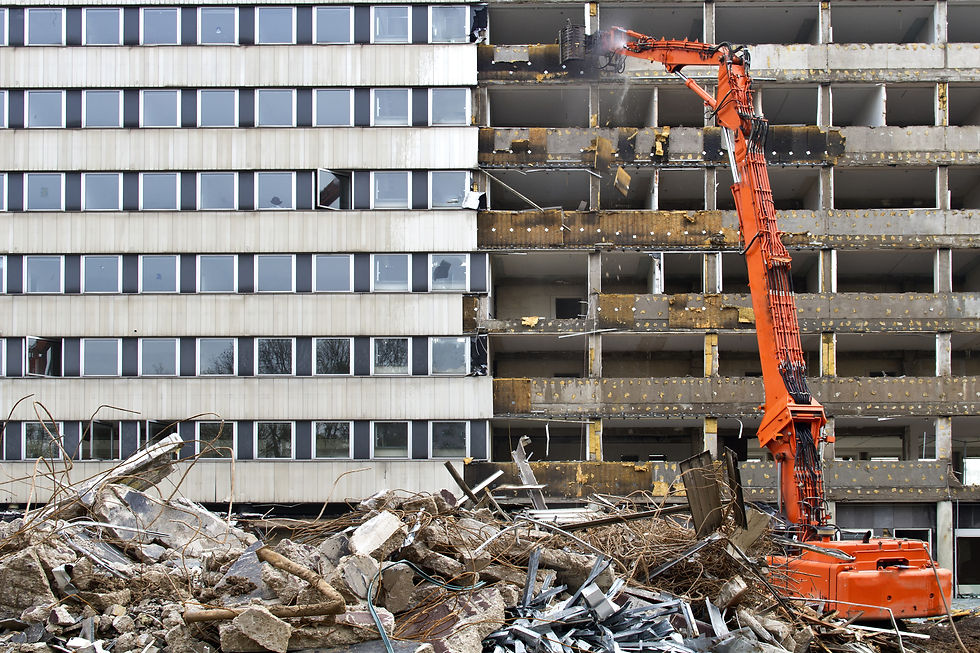The Cost of Demolition: Factors That Affect Pricing and Budgeting Tips
- Mar 20, 2024
- 2 min read
Updated: Aug 15, 2024
Demolition is an essential part of the construction and renovation process. Whether you are tearing down an old building to make way for a new development or removing an outdated structure to improve property value, understanding the cost of demolition is crucial. The pricing of demolition services can vary widely based on several factors. This blog will explore these factors in detail and provide budgeting tips to help you manage your demolition project effectively. Allied Wrecking Boston, a trusted name in the industry, offers comprehensive demolition services tailored to meet your specific needs.
Key Factors Affecting the Cost of Demolition

1. Size and Scope of the Project
The most significant factor influencing demolition costs is the size and scope of the project. Larger buildings and more extensive demolition projects naturally require more time, labor, and equipment, increasing costs. For instance, demolishing a single-family home is less expensive than bringing down a multi-story commercial building. Allied Wrecking Boston provides customized estimates based on the specific details of your project, ensuring transparency and accuracy in pricing.
2. Type of Structure
The type of structure being demolished also impacts the cost. Residential demolitions are typically less expensive than commercial or industrial demolitions due to the complexity and materials involved. Commercial buildings often contain more hazardous materials, steel frameworks, and intricate utility systems that require specialized handling. Allied Wrecking Boston's team of experts is skilled in handling all types of structures, from small homes to large industrial sites, ensuring safe and efficient demolition processes.
3. Location
The location of the structure can significantly affect demolition costs. Urban areas with high population density and close proximity to other buildings may require additional safety measures and permits, increasing the cost. Conversely, rural areas might have lower costs but could incur higher transportation fees for equipment and debris removal. Allied Wrecking Boston navigates these challenges by leveraging their local expertise and extensive network, ensuring cost-effective solutions regardless of your project's location.
4. Permits and Regulations
Obtaining the necessary permits and adhering to local regulations can add to the cost of demolition. These costs vary depending on the municipality and the complexity of the project. Allied Wrecking Boston manages all aspects of regulatory compliance, including permit acquisition and adherence to local, state, and federal regulations, streamlining the process and reducing potential delays and costs.
5. Hazardous Materials
The presence of hazardous materials such as asbestos, lead, or mold can significantly increase demolition costs. These materials require specialized handling and disposal procedures to ensure the safety of workers and the environment. Allied Wrecking Boston's certified professionals are trained in the safe removal3
.png)








Comments